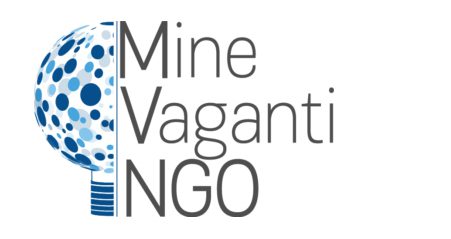In 2006, we witnessed an increase in the presence of migrants in the Sardinian territory, mostly concentrated in the big cities, thereby too often creating closed communities, little integrated in the local social fabric.
The project “Ti vedo, ti sento, ti parlo”; intended to continuwe on the pathway initiated by the previous edition of the project, with the aim of preventing the growth of a racist culture, answering the challenge of integration through poposing a culture of difference for a cohesive, inclusive and solidaristic society.
In particular, the project deployed its activities in the cities of Sassari, Olbia and Tempio. The project lasted a total 9 months divided in the phases of preparation, implementation and Dissemination of the achieved results. The implementation phase lasted between March and December 2017.
The project involved the following partners:
- Scuola Pitagora of Sassari
- ITCG Attilio Deffenu in Olbia
- Liceo Artistico statale Fabrizio De Andrè Tempio Pausania
- University of Sassari
- ESN Sassari
- Partecipazione e Sviluppo Onlus
The partner High Schools were involved in a pattern of intercultural learning and sensitization on the topics of integration focused on intercultural dialogue with the use of non formal education methods. A total of 3 Learning cycles was organized lasting 1:30 hours each on a 2 per week basis. The project achieved the production of a Video and various art products.
The Onlus Partecipazione e Sviluppo, working in migrant hosting/support, was involved in a series of meetings with the students of the University of Sassari as well as in the Final Event, with the involvement of the migrants hosted in the shelters managed by the organization. The Onlius also contributed to organizing the educational meetings and the Final Events foreseen by the project.
The University of Sassari was involved via the Courses in Political Science and International Cooperation. Overall, 20 students took part in 1 educational cycle of 8 workshops lasting 1:30 hours each on a 2 per week basis. The students also took part in the meetings addressing the topics of immigration and social inclusion reflecting over the opportunities to establish cooperation for development arrangements in the territories concerned by migration flows. Migrants of different nationalities hosted in the shelters managed by the Onlus were involved, sharing their experiences and challenges through the Storytelling method, consisting in the use of narrative in order to better promote values and ideas. Different workshops were organized, among which Cultural Tandems and roundtables wherein the youngsters shared and reflected over the diffenrent aspects of their culture in an interactive and innovative fashion. In this context, a productive work was carried out for the production of materials for the Final Event (informational material, projects, videos with traditional dance and music).
The ESN Sassari association offered its support in the organization of the Final Event by involving Erasmus students who were in Sassari on an experience of study/internship. ESN Sassati is already experienced in organizing this kind of events, since it orgazizes the EuroTrip every year, involving foreign students.
During the last project month, a Final Event was implemented i order to valorize and disseminate project results sharing them with the community and with all project partners. The event, named World Trip, as it involved also youngsters coming from extra-European countries, was organized as a ful day in the Santa Caterina Square in Sassari (public square in the Old Town wherein youngsters of different nationalities are used to gathering) in whose context all the persons involved in the project, divided by nationality, presented their culture through sharing the culinary and gastronomical traditions of their home countries. Each group had the opportunity to have its own stand wherein to display tipical dishes, items, videos and inormational materials of different nature. The Event represented a moment of sharing and integration among students of different age-bands and people of different nationalities to favour social inclusion and sensitization.



The final output of the project was a mapping of existing Sardinian good practices of migrants’ integration.
Manuale-buone-pratiche-II-edizione
The results of project final evaluation by participants were reported in the below Questionnaire.


